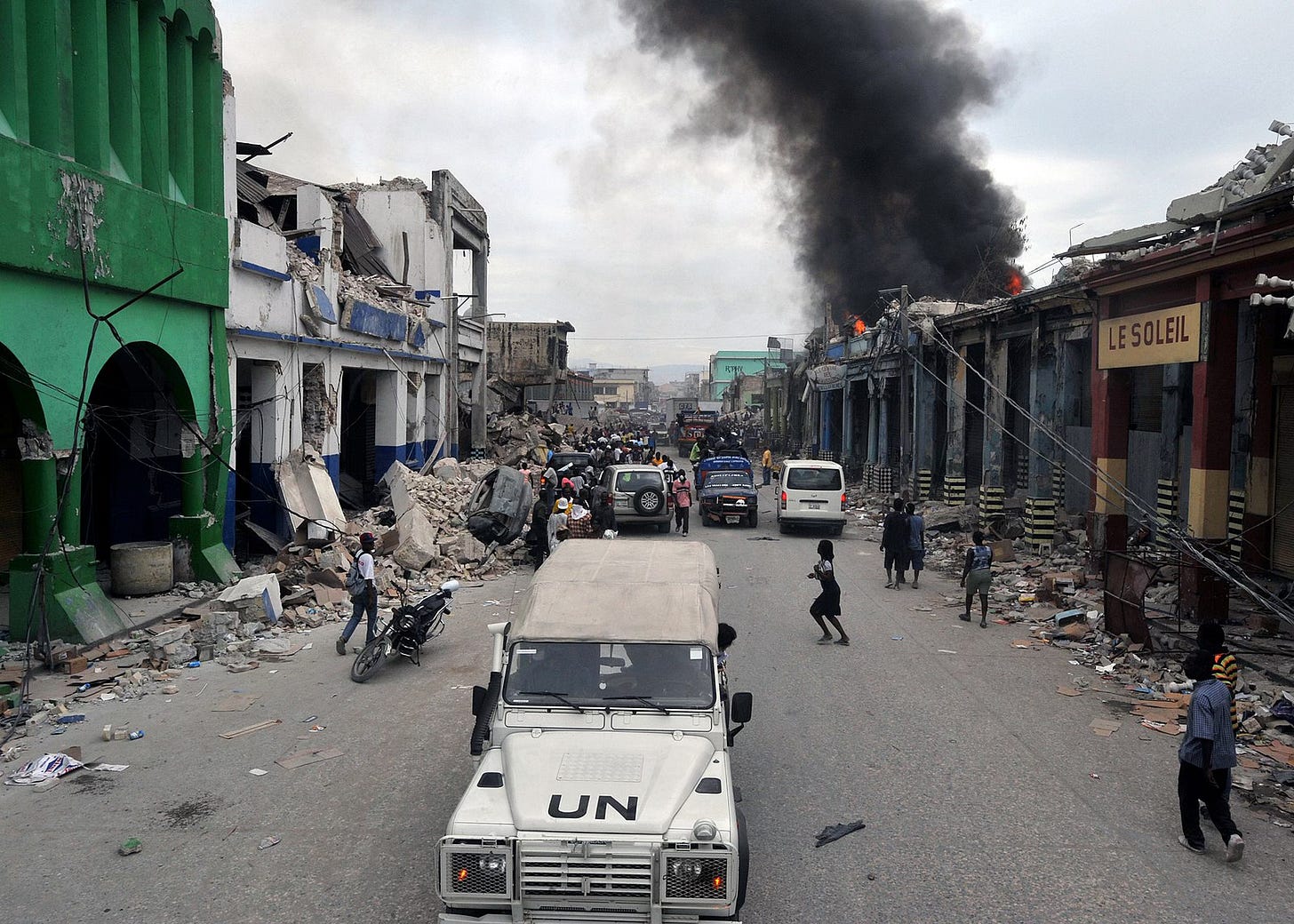UN Signs Off on New Gang Suppression Force for Haiti After Last Plan Collapsed
Will the UN finally succeed in delivering peace to Haiti?
By André Costa | 2 October 2025
The United Nations Security Council has approved a new mission in Haiti, this time called the Gang Suppression Force (GSF), a larger and more militarized body than its predecessor. It is billed as the answer to a crisis that has steadily spiraled out of control, with gangs exerting authority over entire neighborhoods of Port-au-Prince, strangling daily life, and driving the country further into collapse.
The GSF will include up to 5,550 personnel, overwhelmingly uniformed, but with a small civilian support wing, and, crucially, it comes with authority not just to support Haiti’s police, but to launch its own intelligence-led operations, to make arrests, and to secure key infrastructure. The resolution, co-sponsored by the United States and Panama, is written under Chapter VII of the UN Charter, meaning that force can be used. This distinction sets it apart from what came before, but doesn’t necessarily promise the mission is destined to succeed.
The last plan, the Kenyan-led Multinational Security Support (MSS) mission, simply never worked. Authorized in 2023, MSS was meant to deploy around 2,500 police officers, with Kenya taking the lead. On paper, it was supposed to back up the Haitian National Police, clear areas held by gangs, protect vital infrastructure, and allow space for elections and governance to resume. In practice, it was a skeleton of a mission, without the flesh of a military force to offer effectiveness.
Only a fraction of the pledged personnel ever arrived. At one point, fewer than 400 Kenyan officers were on the ground. Equipment promised to them never showed up, as well as armored vehicles, communications gear, helicopters, being delayed or similarly going absent. Funding was voluntary, and most of it never showed up. The result was a mission that lacked the manpower and the tools to take on gangs who were already entrenched, well-armed, and in many cases better supplied than Haiti’s own police.
The mandate itself was muddy. MSS was not a true UN peacekeeping mission, and it was not a pure enforcement mission either. Its powers were meant to flow through Haitian institutions, but those same institutions were hollowed out, politically divided, and mistrusted by the population. Gangs adapted quickly, and without the ability to secure neighborhoods or follow through with arrests, MSS found itself acting more like an observer than a force of change.
By the time MSS had established a footprint, gangs had consolidated further, and the streets of Port-au-Prince had slipped even deeper into violence. The mission became an example of international half-measures, announced with fanfare, starved of resources, and ultimately remembered more for what it couldn’t do than for what it achieved. And when it couldn’t even pay its own staff, that is the sign that inevitable failure was always the destination for the MSS.
The new Gang Suppression Force is supposed to avoid those mistakes. It has a stronger mandate, more numbers, and a clearer set of powers. It also has a UN Support Office built into the resolution, tasked with providing logistical and operational backing. However, funding and troops are still to be provided on a voluntary basis, meaning the mission’s success will depend on whether states actually deliver what they promise
And there is still the weight of history. Haitians remember MINUSTAH, the earlier UN mission that left behind scandal and trauma, the cholera outbreak traced to UN peacekeepers, allegations of abuse, the sense that foreign troops came but did not answer to those they claimed to protect. That memory lingers, and it hangs over the new deal as a warning that missions to Haiti do not have a reputation of delivering on promises of peace.
If the Gang Suppression Force is to be different, it will need not only boots on the ground and the authority to act, but also accountability, local legitimacy, and a plan that does not vanish the moment donor enthusiasm dries up. Haiti’s people have lived through too many international missions that arrived with promises and left with unfinished business.




